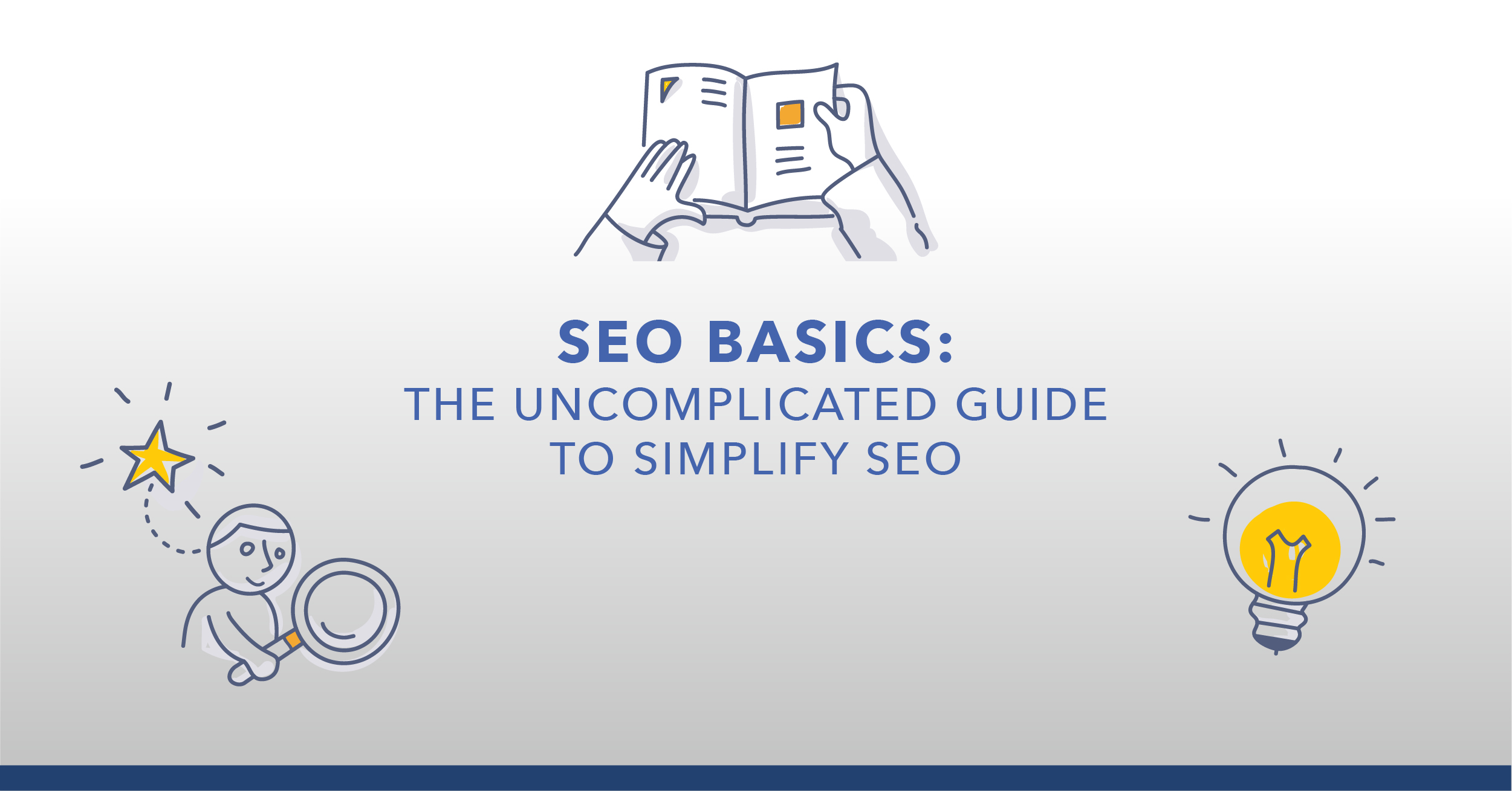From a high level, keyword research is simple: its goal is to research topics and keywords that customers use to find information relevant to them along their buyer’s journey.
Long gone are the days of keyword stuffing in the hopes of ranking high in the search results. Google wants to deliver the most relevant results to searchers so their query is answered, and constant updates allow them to do so in a way like never before
Google’s BERT update, for example, allows the search engine to understand the context of a search query and semantically related keywords to have a holistic understanding of what the searcher wants. Google can also intelligently interpret websites to match the most relevant site with the query. Keyword research today goes well beyond a simple phrase match.
So, you use keywords to tailor your content to get in front of the end user throughout all stages of the buyers funnel in a way that proves useful for the end user.
But in practice, successful keyword research – that is, you understand the ways people use Google search to find your product or service so that you can have proper site optimization – can be tedious.
Luckily, there are tools available to help you with keyword research, but in some ways, traditional keyword research is broken.
Let’s go over the background ...
The Challenge With Keyword Research
As an SEO (or someone who works in content marketing) who conducts keyword research, you may use Google Keyword Planner to locate keywords, and then use Excel to filter down the keywords to show those that are relevant to your industry.
The challenge with Keyword Planner, however, is that it only provides 800 keywords per search, which means you have to run multiple queries to collect larger sets of keywords – all of which is a manual and tedious process. Not to mention that – unless you are spending with Google Adwords – you can’t see the true search volume of those keywords, only their ranges.
If you do use a keyword research tool, it will scan its database and give you all the string match keywords for your target word. This means that your keyword is closely related to the spelling of the string match keywords. This can be suitable for some scenarios, however, a simple string match does not uncover the truly connected concepts.
To conduct effective keyword research, you need to be able to look at holistic concepts, not just specific strings. For example, if your keyword was “conjunctivitis,” the tool wouldn’t show you results related to “pink eye,” because it wouldn’t know that the concept of pink eye is the exact same as conjunctivitis.
Many of the tools available to help with your research still tout access to enormous data sets of keyword phrase variations as the best solution.
The issue is that in a set of a billion keywords, a lot of them are going to be unhelpful junky variations that lead to inflated metrics and misled decisions. Remember, Google understands concepts now, so misspellings of search terms aren’t useful targets.
These tools work the way Google used to: focusing on the exact string you type in. If you can’t parse a huge data set by topic or concept, a lot of time will be spent manually finding what you want. This is also limited by the researchers knowledge of the topic.
Luckily, there are some ways to overcome these challenges.
Recommended Reading: 5 Modern Keyword Research Techniques You Must Consider
Keyword Research Methodology

In a nutshell, we recommend you conduct your research with this 5-step keyword research strategy:
- Plant: find keywords related to what you offer. Create a large list of keywords in this stage.
- Prune: narrow down the keywords to identify those that are most relevant.
- Prioritize: reduce the list to what you can win on.
- Build: create content that is relevant and authoritative.
- Track and Tweak: utilize analytics to re-optimize content to alter the relevancy it targets as results come in.
First, plant your seed keyword to find other keywords related to that topic. But with so many potentially related keywords, you’ll need to prune the results down to narrow in on those that are most relevant to you. Even for your specific industry and keywords pertaining to your industry, you’re most likely not relevant for all of those search terms, so prune to reduce the list to make it more manageable.
Get rid of anything that is adjacent to your enterprise, but not on the nose enough to help a client find you.
Next comes prioritization. At this point, you have your golden keyword portfolio, but how do you prioritize those you can win on?
Consider which keywords are the most important, and which you can actually rank for in the short- and medium-term for those quick wins.
You don’t want to focus on the long term projects first because if it takes a year to show results, for example, that may be a problem in proving value and ROI with your executives. You may be familiar with the idea of keyword difficulty and its role in keyword prioritization, but we do not believe that current methodologies of keyword difficulty are actually accurate or helpful.
Now you can create (build) content that is authoritative and relevant to your target audience. And, yes, that can mean blog posts, but it can also mean your FAQ page, contact page, support page, category and product pages, etc. Everything on your website is content, so you should make sure all of it is as helpful as possible.
The last step is to track results as they come in, and tweak and re-optimize the content to maximize relevancy to what it’s targeting based on your results.
It doesn’t matter what tool you’re using – this keyword research methodology still applies if you want to succeed in SEO.
After you learn this keyword research strategy, follow our step-by-step guide on how to do keyword research.
Target the Right Topics/Keywords
In order to make sure that you target keywords that will actually help you, you first have to make sure you understand your target industry, which can be a challenge if you’re coming to it fresh.
Some keyword research tools allow you to research industry-related keywords so that you can know what direction you should look in. You want to answer the questions, “What are people searching that relates to you?” and “What is the search volume?”
Let us send run a keyword search analysis for you. Uncover the search volume, SERP features, intent, and more of your target keyword.
Once you feel like you have a handle on your industry, you evaluate market potential. Use your keyword research tool to find the total search volume and traffic potential for a group of keywords.
Also consider what your competitors rank for. It’s important that you find out who your true competitors are, not just your perceived competitors. This becomes more apparent as you see on a granular level what websites rank for the keywords you’d ideally like to rank for.
Do you want to compete with them in those rankings (i.e. try and close the content gap), or are there better opportunities available in trying to rank for valuable terms your competitors don’t already rank for? You can also increase your own content’s relevance and value by understanding and emulating what your competitors do well.
Sometimes your content strategy may be dependent upon the time of year, since different seasons create different rises and falls in customer demand for certain products and services.
You want to sort through keyword traffic data over time, which makes it easy for you to uncover seasonal trends. Once you know when your peaks are, by the time demand hits, you can ensure you’re already in place to capture that demand. And even within a keyword topic, there will be further seasonality for you to discover within certain groups of keywords. You can use all of that to your advantage.
Prioritization by user intent also allows you to create meaningful content and address opportunity.
You also need to make a data-driven case for why you should target those keywords. If you sell playing cards, do you really need to rank for “cards”? There are so many different kinds of cards, you have to disambiguate searches to really hone in on what matters to you.
You aren’t in competition with holiday cards or baseball cards – so don’t try to be.
Data presents a lot of information and trends – you should identify patterns anywhere you see them, so you can make use of them later on.
Recommended Reading: Long-Tail Keywords Deserve Your Attention. Here's How to Find Them.
Keyword Research Tools
To get all this done, you need an excellent keyword research tool. Google Keyword Planner is the prototypical tool, and many more exist on the market, but it all comes down to this: what tool has a database of keywords that covers your industry? Plus, it’s even better if you can section off keywords by topic and semantically related keywords instead of purely phrase match. That's how you'll generate valuable keyword ideas — that is, the right keywords.
Consider the overall quality of the dataset as well. Do you have to prune through so many misspellings and low or zero search volume keywords? The other consideration is how frequently the last time the keyword was rank checked within that dataset. If you have to check the SERP to know what top pages rank, your keyword research process isn’t scalable.
If you can get that, you’re golden – and we happen to have some thoughts on the best keyword research tools on the marketplace.
At seoClarity, we operate the world’s largest competitive data set. All of the keywords in our database are rank checked for both desktop and mobile every month, so you’re guaranteed fresh and relevant data. Along with our Research Grid, we have Topic Explorer, which is just one way you can discover topics and then parse out the information to find what’s relevant to you. Discover content gaps, the keywords that are related to your work industry, keyword seasonality and search volume, and more.
Keyword research isn’t tedious or daunting when you’re working with the right tools.
Recommended Reading: Key Factors to Evaluate in Keyword Ranking and Research Tools
Conclusion
Essentially, keyword research is an important part of understanding your users' needs and wants. If you know their demand, creating content and new pages for your site to attract the right users becomes much easier. The more content on your site that's relevant, the more visibility your site will have — which drives more customers and business to you!
But before you shoot to the top of the Google SERP, you have to know what it is that people search for so that you can be the answer, and that’s not as straightforward as it seems. This is where your keyword research comes in to help form your SEO strategy.
Even though you may think you know your industry inside and out, make sure to think outside your box, and use a high quality tool to save your valuable time. When it comes to keyword research databases, quality is more important than quantity – ultimately, though there are billions of keywords, you only need to improve visibility on the SERP for hundreds or dozens to see a significant return thanks to the advancements of search engines.
Leverage this keyword research methodology to plant, prioritize, prune, build, and track to attract more users to your website.






